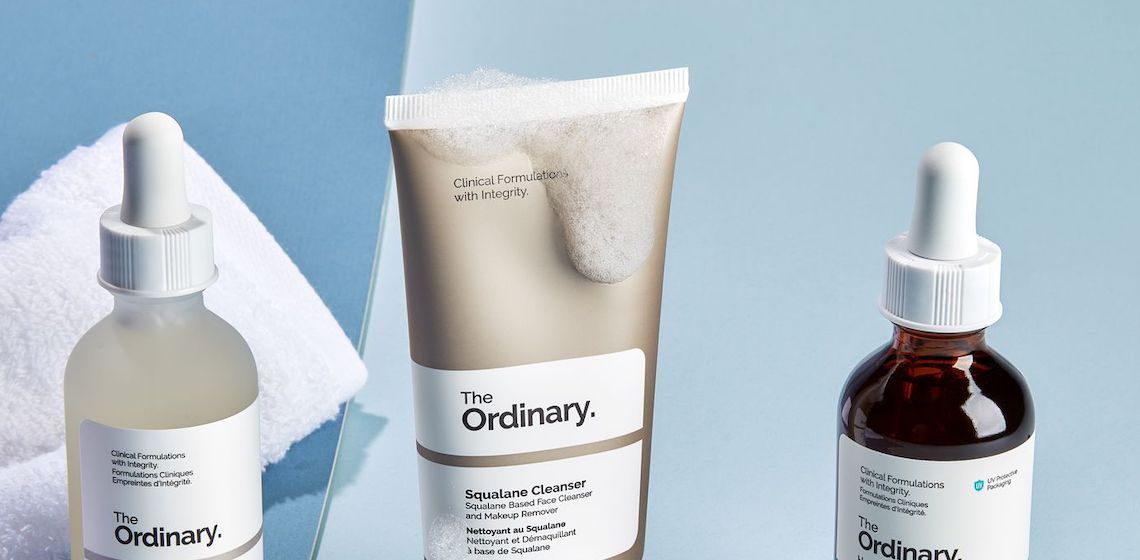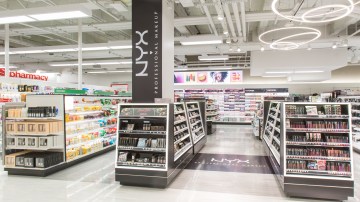This summer, The Ordinary is embarking on one of its biggest campaigns ever.
On June 5, 13-year-old The Ordinary kicked off its largest-ever out-of-home campaign, which will run throughout the summer. Taking place in New York City, the campaign includes a subway digital takeover, on both trains and stations, plus digital signage, and wild postings in the SoHo and Herald Square neighborhoods. Operating as a brand awareness play, the campaign is called “Quality Equality” to showcase The Ordinary’s product quality, science-backed ingredients and affordable cost. Typically, The Ordinary products retail for $10-$22.
The choice timing of the campaign is twofold. First, The Ordinary is, at last, able to manage its supply chain without concern about selling out, allowing it to support big-scale ad campaigns. Secondly, it reasserts the brand’s philosophy and price point in the face of competitors and an uncertain economic landscape.
Since 2022, Deciem has added a new general manager to the team, launched in new markets like the Middle East and India, and launched at least six new products. During the summer, it will debut on TikTok Shop, an e-commerce solution integrated within TikTok.
As of 2021, The Estée Lauder Companies increased its 26% ownership of Deciem to 76%, paying $1 billion. Also that year, it agreed to purchase the remaining interests after a three-year period and valued the company at $2.2 billion. In Estée Lauder’s most recent third-quarter earnings report from May, it reported that The Ordinary sales grew by double-digits year-over-year during the period.
“We wanted to showcase that we make high-quality ingredients at sensible prices that are available to everyone,” said Jessica Bibby, vp of Americas markets. “We wanted to be louder than we normally have, and [OOH allowed] as many people as possible to hear about it.”
After a strong start in 2022, where advertising spending grew by 11% year-over-year in the U.S., advertising spending slowed in the second half amid global economic uncertainty to only 3% year-over-year, according to data from media investment and data company Magna. Meanwhile, traditional media channels like OOH grew by 12% year-over-year in 2022, while digital media companies grew by 9%. Magna wrote that OOH will complete a full global recovery in 2023 by growing by 6% to $33.5 billion.
Refamiliarizing the public that its affordable products are for everyone is also a motivator for the campaign. The campaign imagery includes products like a niacinamide or hyaluronic acid serum settled in the middle of a Venn diagram, where two sides of the beauty consumer are represented in quotes or statements. For example, on the left side of one poster is the beauty junky, with quotes like, “When’s my next facial?” That’s juxtaposed against the right side, with the question, “What’s a serum?” Product prices are displayed at the bottom.
Many other brands have recently honed in on focusing on product affordability in marketing and communications, including Mario Badescu, The Inkey List and No.7 Beauty Company. Earlier in 2023, The Inkey List launched an online service called Smarter Skincare, acting as a swap-and-save service in response to rising inflation and the cost-of-living crisis in countries like the U.K.
“There is a cost-of-living crisis, and it is particularly strong within the U.K. [But] quality skin care is accessible in the countries where we’re distributed. Accessibility comes through many places: price point, distribution and education,” said Nicola Kilner, co-founder and CEO of Deciem.
Following the Quality Equality campaign, The Ordinary will push out an “Originals” campaign to highlight hero products like Squalane cleanser and Hyaluronic Acid 2% + B5. In addition, the brand plans to expand to South Africa on July 1, then to Japan in Jan. 2024. And The Ordinary plans to keep up with its “Slowvember” anti-Black Friday initiative in November.




